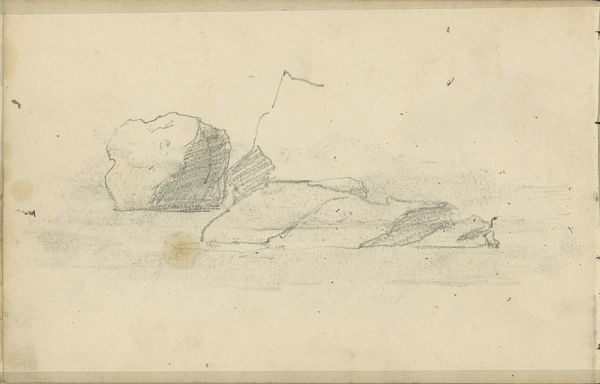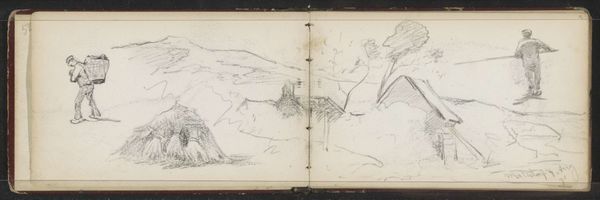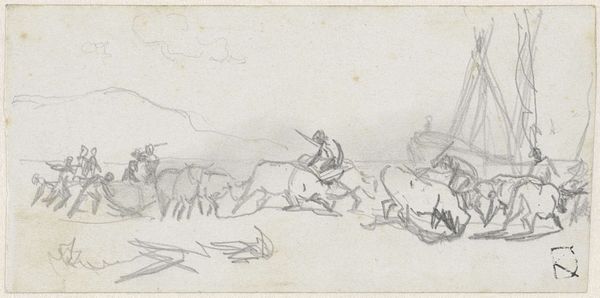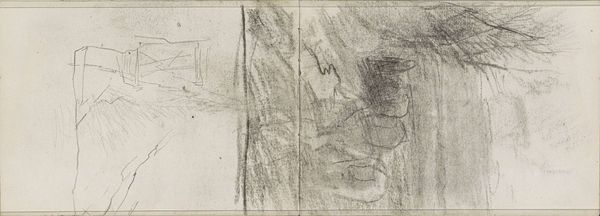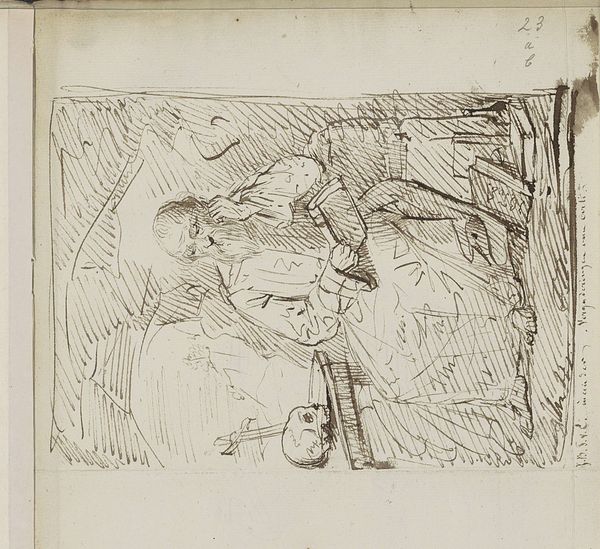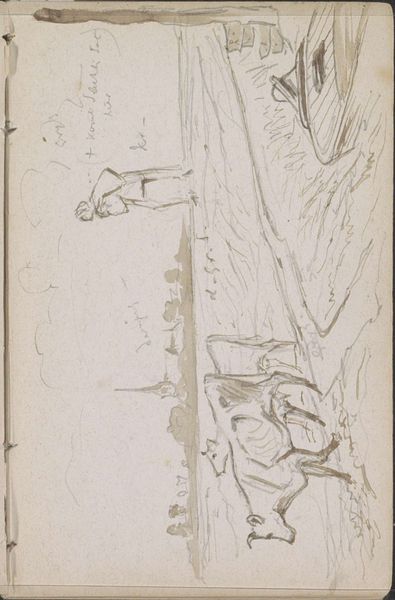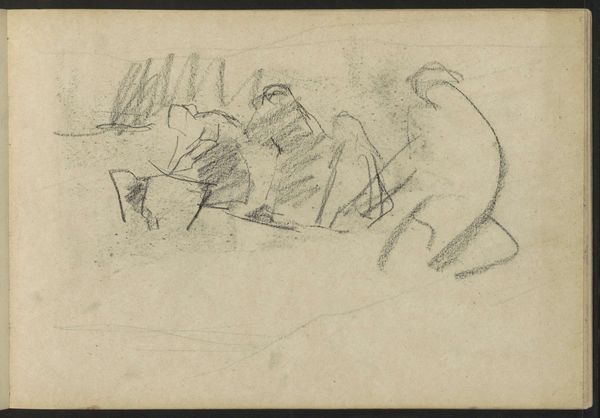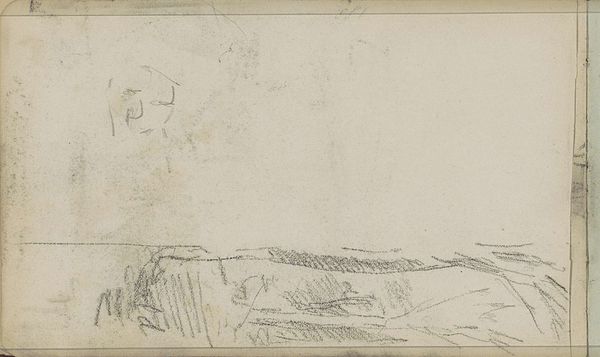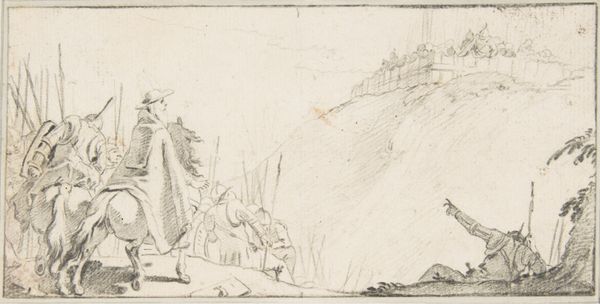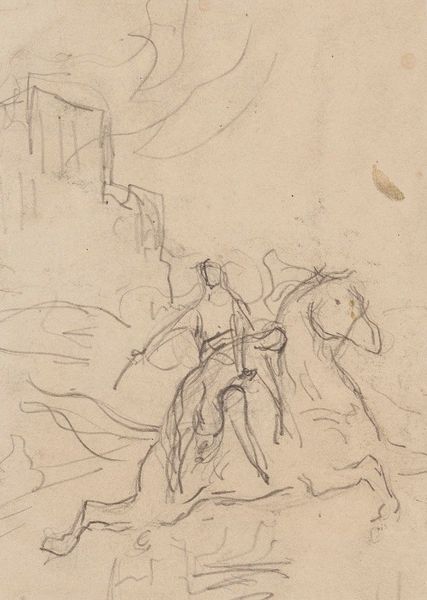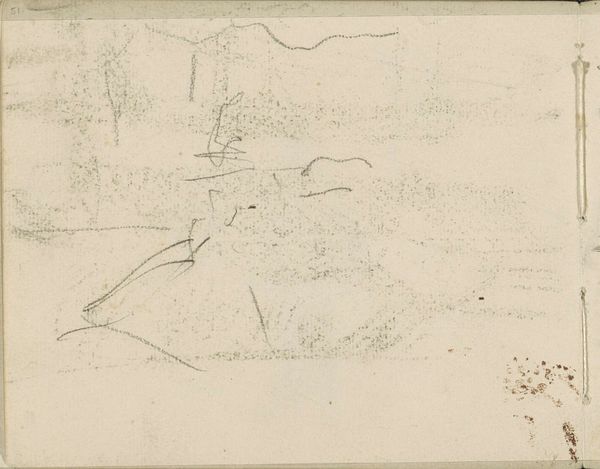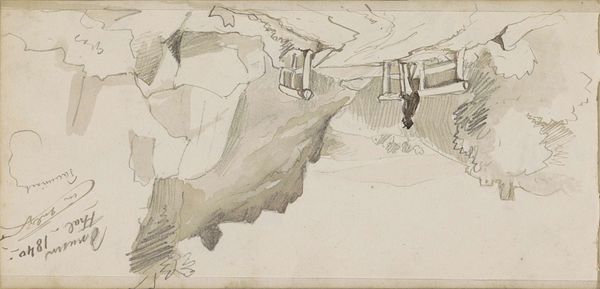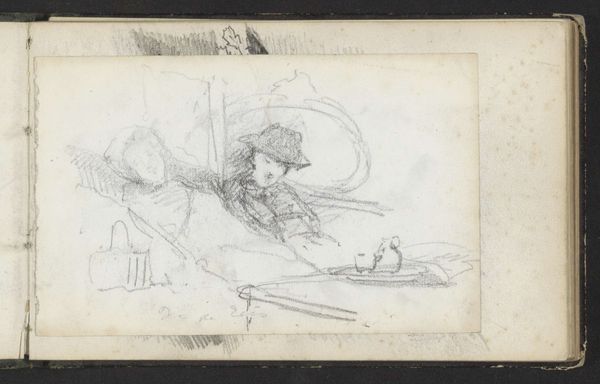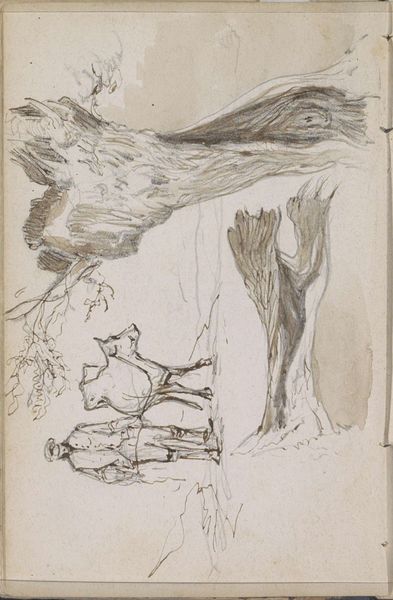
drawing, pencil, graphite
#
drawing
#
landscape
#
rock
#
forest
#
romanticism
#
pencil
#
graphite
Copyright: Rijks Museum: Open Domain
Editor: This is "Lüthersbirche bij Altenstein in Thüringen," a pencil and graphite drawing from 1840 by Johannes Tavenraat. It's so delicate and…sketchy. I’m struck by how simple it seems, almost like a quick study, but I also sense a certain monumentality in the rock formation. What do you make of this drawing? Curator: The means of production are central here. Notice how Tavenraat employs humble materials – pencil and graphite – to capture the grandeur of the landscape. It’s not just about *what* is depicted but *how*. The act of drawing itself, the labor involved, is key to understanding the artist’s relationship to this place. The material limitations – a small piece of paper, graphite – challenge the romantic idealization of nature so common at the time. Consider also where he found the materials, who produced them, and for what intended market. These things also form meaning in the drawing, what is included and excluded and what meanings the audience brought to bear. Editor: That’s a great point. I hadn't considered the material limitations shaping the image like that. So, instead of simply viewing it as a straightforward representation of nature, we should examine the artistic process and the resources available? Curator: Precisely. Think about the availability and cost of paper, graphite production at the time. These economic factors influenced artistic choices, moving beyond mere aesthetic preferences to reflect the social conditions of art production. Editor: It's amazing how a simple drawing can reveal such complex connections between art, labor, and material culture. Thank you for the insight! Curator: Indeed. This small sketch holds layers of meaning once we begin to think materially about its origins and context. I learned a lot from looking at it this way today, too.
Comments
No comments
Be the first to comment and join the conversation on the ultimate creative platform.
